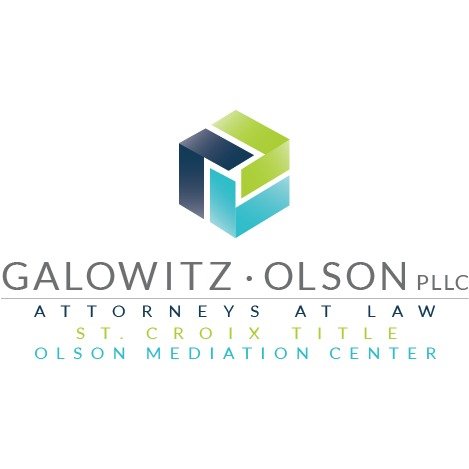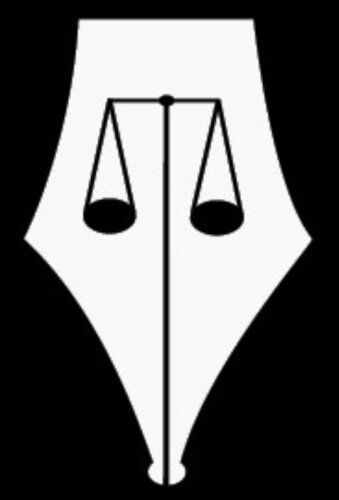Best Land Use & Zoning Lawyers in Minnesota
Share your needs with us, get contacted by law firms.
Free. Takes 2 min.
Free Guide to Hiring a Real Estate Lawyer
Or refine your search by selecting a city:
List of the best lawyers in Minnesota, United States
About Land Use & Zoning Law in Minnesota, United States
Land use and zoning law in Minnesota refers to the rules, regulations, and government policies that control how land is developed and used across the state. These laws affect what activities can take place on a property, the types of buildings that may be constructed, and the density and design of developments. Zoning ordinances are established by city or county governments to organize land uses into categories such as residential, commercial, industrial, and agricultural. The goal is to balance development with environmental protection, ensure safe and orderly growth, and reflect the interests of communities. Property owners, developers, and public officials must all comply with these regulations when using or altering land.
Why You May Need a Lawyer
There are many situations where individuals or businesses in Minnesota may need legal help with land use and zoning issues. Common scenarios include:
- Buying or selling property with complex zoning restrictions
- Seeking permits or approvals for new construction, renovations, or subdivisions
- Requesting variances or conditional use permits due to unique property needs
- Challenging zoning decisions made by local governments
- Dealing with disputes between neighbors or with municipalities over land use
- Understanding the impact of comprehensive plans or new regulations
- Ensuring land use complies with environmental, wetland, or shoreland protections
An experienced attorney can help navigate complex procedures, negotiate with officials, and represent your interests in hearings or court if necessary.
Local Laws Overview
In Minnesota, zoning and land use laws are mainly established and enforced at the local (city or county) government level, though state regulations sometimes apply. Each city or county has its own zoning ordinances, subdivision codes, and comprehensive plans which guide development and land use decisions. Key aspects of Minnesota land use and zoning law include:
- Zoning districts: Properties are assigned to districts such as residential, commercial, industrial, or agricultural, each with specific allowed uses.
- Zoning maps and ordinances: Local governments use maps and ordinances to show and define permitted activities in each district.
- Variance and exception procedures: If a property owner wants to use land in a way not typically allowed, they may apply for a variance or conditional use permit through hearings before local boards or commissions.
- Comprehensive plans: State law often requires cities to adopt comprehensive plans that set long-term goals for growth and land use, guiding future zoning decisions.
- Environmental considerations: State and federal rules protect sensitive areas such as wetlands, shorelands, and floodplains, sometimes limiting land use beyond local zoning.
- Public hearings and notice: Property owners and neighbors are generally entitled to notice and an opportunity to be heard before major zoning changes or approvals.
These laws can vary significantly between different cities and counties, so it is important for property owners to consult local resources or attorneys familiar with the area.
Frequently Asked Questions
What is zoning and why does it matter?
Zoning is the process by which local governments regulate land use by dividing areas into zones for residential, commercial, industrial, and other purposes. Zoning affects what you can do with your property, including building, remodeling, or running a business.
How do I find out the zoning for my property?
You can check your property’s zoning by contacting the local city or county planning and zoning office or reviewing their official zoning map, which is often available online.
Can I change the zoning for my property?
It is sometimes possible to apply for a zoning change (rezoning), but this process usually involves public hearings and approval from local authorities. There is no guarantee your request will be granted.
What if I want to use my property in a way not currently allowed?
You may need to apply for a variance, conditional use permit, or other special permission, depending on the specific situation and local ordinances.
What is a variance?
A variance allows a property owner to use land in a way that deviates from the standard zoning rules, usually due to special circumstances. Variances are granted by local boards after a formal application and hearing process.
How do environmental regulations affect land use?
Certain properties in Minnesota, such as those near wetlands, lakes, rivers, or in floodplains, may be subject to additional state or federal protections that limit development or require special permits.
Do I need approval for a home business?
Many cities and counties regulate home-based businesses through zoning. Depending on your business type, you may need a permit or have to meet special requirements.
Can neighbors object to my plans?
Yes, neighbors are often notified of zoning applications or changes and may express support or opposition at public hearings.
What role do comprehensive plans play in zoning decisions?
Comprehensive plans set long-term visions for community growth and are used to guide present and future zoning decisions by local governments.
What should I do if I receive a zoning violation notice?
Promptly contact your local planning or zoning office to clarify the issue. You may need to correct the violation, obtain a permit, or appeal the decision. An attorney can help you consider your options.
Additional Resources
Several organizations and government offices offer information and assistance on land use and zoning in Minnesota. Some helpful resources include:
- Minnesota Department of Natural Resources (DNR) - for information on shoreland, wetland, and floodplain regulations
- Minnesota Pollution Control Agency (MPCA) - for environmental compliance and permitting guidance
- Local city or county planning and zoning departments - for local ordinances, zoning maps, and application processes
- The League of Minnesota Cities - offers educational materials about land use and zoning for the public and local officials
- The Minnesota State Bar Association - can help you find qualified land use and zoning attorneys
Next Steps
If you are dealing with a land use or zoning issue in Minnesota, it is important to start by gathering information about your property’s zoning designation and relevant local ordinances. Visit or contact your city or county planning office to learn more about regulations and application procedures. For complex situations or if you face a dispute, consider consulting a qualified attorney who specializes in land use and zoning law in Minnesota. An attorney can help you understand your rights, prepare applications, represent you in hearings, or negotiate solutions with government officials. Acting early and understanding the rules will help protect your interests and avoid costly mistakes.
Lawzana helps you find the best lawyers and law firms in Minnesota through a curated and pre-screened list of qualified legal professionals. Our platform offers rankings and detailed profiles of attorneys and law firms, allowing you to compare based on practice areas, including Land Use & Zoning, experience, and client feedback.
Each profile includes a description of the firm's areas of practice, client reviews, team members and partners, year of establishment, spoken languages, office locations, contact information, social media presence, and any published articles or resources. Most firms on our platform speak English and are experienced in both local and international legal matters.
Get a quote from top-rated law firms in Minnesota, United States — quickly, securely, and without unnecessary hassle.
Disclaimer:
The information provided on this page is for general informational purposes only and does not constitute legal advice. While we strive to ensure the accuracy and relevance of the content, legal information may change over time, and interpretations of the law can vary. You should always consult with a qualified legal professional for advice specific to your situation.
We disclaim all liability for actions taken or not taken based on the content of this page. If you believe any information is incorrect or outdated, please contact us, and we will review and update it where appropriate.
Browse land use & zoning law firms by city in Minnesota
Refine your search by selecting a city.









